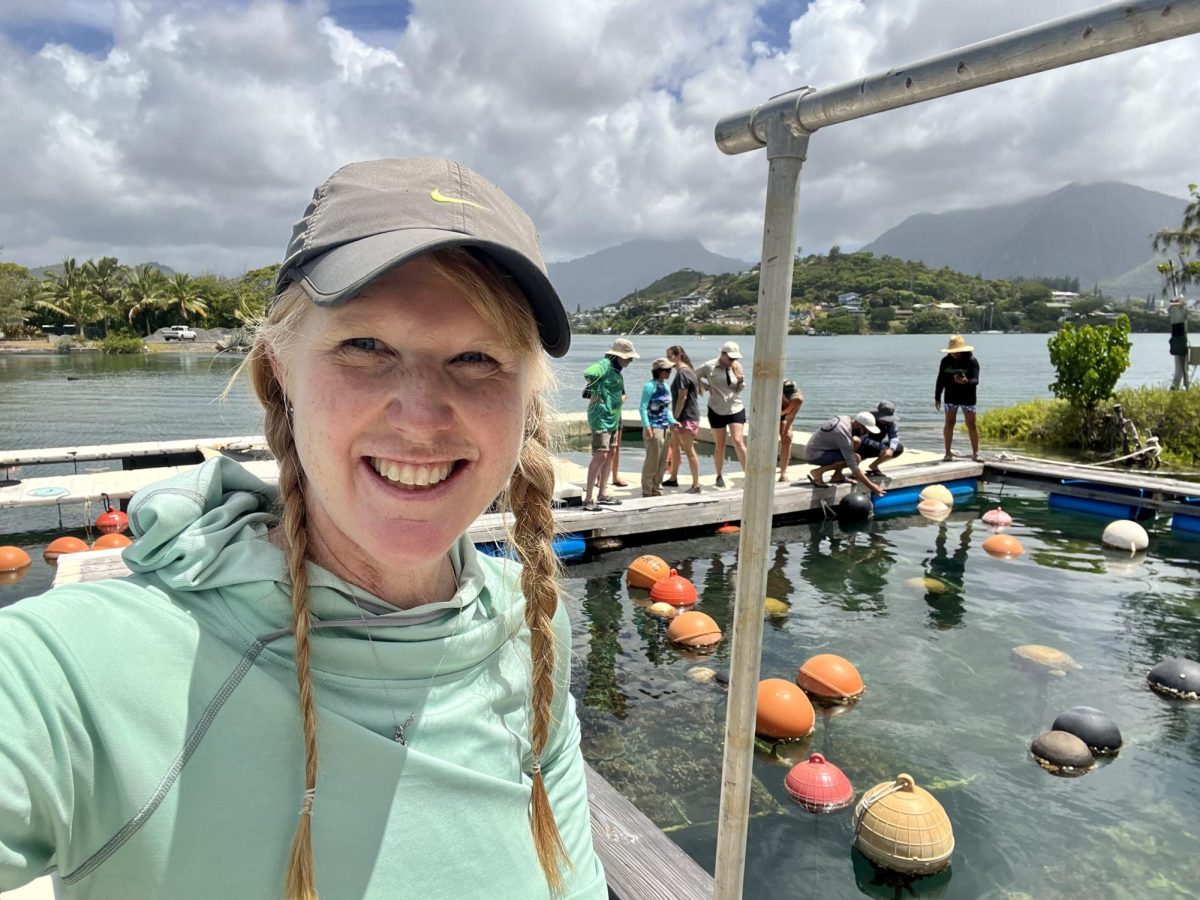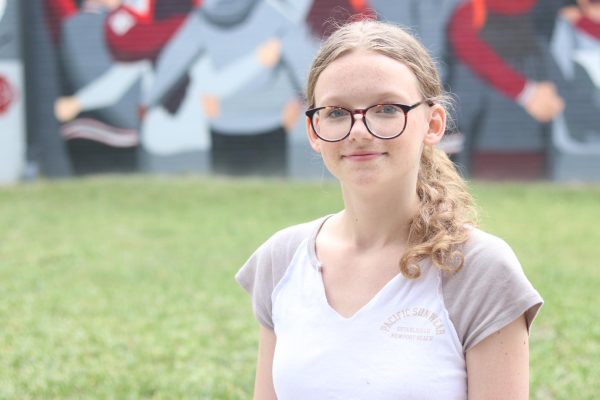Science teacher Lisa Ball’s hands-on research trip to Hawaii over the summer provided many opportunities for both her and her students.
The trip lasted two weeks, and five of those days Ball participated in a workshop with the University of Hawaii at the Monterey Bay Aquarium Research Institute.
Ball is a well liked teacher, and she is known for going above and beyond in the classroom.
“She plays 80’s music every class and I love that,” junior Cooper Grant said. “She’s just very kind and very willing to chat a little bit and always brighten my day.”
Ball has built lasting relationships with many students. Junior Adelle Spiess has her for Advanced Biology and AP Environmental Science.
“She’s an incredibly kind and wholesome person in my eyes. She has the cutest stories about the environment and her passions for it,” Spiess said.
Ball was picked for a selective teacher exchange program last March where she was able to teach students in Ghana, Africa.
“The trip was an opportunity for her to visit a lot of ecosystems, see a lot of wildlife and I heard that she had a wonderful time,” Speiss said. “She met wonderful teachers and students there.”
Over this summer, Ball had the opportunity to go to a workshop at the University of Hawaii. She went on a boat to a private island (which the University of Hawaii owns) with a research lab. On the private island, the University of Hawaii has a baby coral nursery where they do experiments with coral.
“There are a lot of coral deaths going around in the world due to warming oceans and ocean acidification,” Ball said. “So what they’re doing is they’re going out and finding the coral that’s doing well and they’re cross-hybridizing them with other coral to try to get those strong genes into them. Then they’re planting them out into the ocean to see how they do.”
Along with a teacher she met from the Ghana trip, Ball is going to bring her experiences back into their classrooms. They’re going to adopt robot floats and have a naming contest for them. Then the robots will be taken out on a ship and dropped in the ocean. Both their classes will be able to track the robots moving around the world.
“There haven’t been any schools in Kansas who’ve done it yet, so we’ll be the first school in Kansas,” Ball said. “It can be kind of overwhelming because you get a lot of data, so in the workshop we both talked about and looked at some lab experiences, and we even wrote some together as a group that we can use in classrooms.”
There is also a pen pal system with Ball’s class and the class from Ghana.
“She has us laminating these little things and we’re going to send them back and forth, so that’s one way she’s connecting us internationally,” Spiess said.
“I think it’ll be very good and expansive in my learning to bring new perspectives and new ideas,” Grant said.
The program Ball was involved with was a very selective program; only about 20 teachers from around the world were selected to go.
“She’s bringing an experience very unique to a specific and small amount of teachers that obviously isn’t going to be in most classrooms,” Spiess said.
Ball enjoys bringing her experiences into the classroom and her teaching.
“I had a hard time deciding whether I wanted to be a scientist or a teacher, like a researcher. And I decided I wanted to do both,” Ball said. “So I try to keep science alive and relevant in my classroom by going out and doing these experiences and bringing them back.”
Overall, her students appreciate all the adventures she goes on and how she applies them to her teaching.
“Now she’s going to get to bring this exclusive perspective into our class,” Spiess said. “Because not a lot of teachers get to travel internationally or teach in different environments and she has. I feel like it’s very special.”




